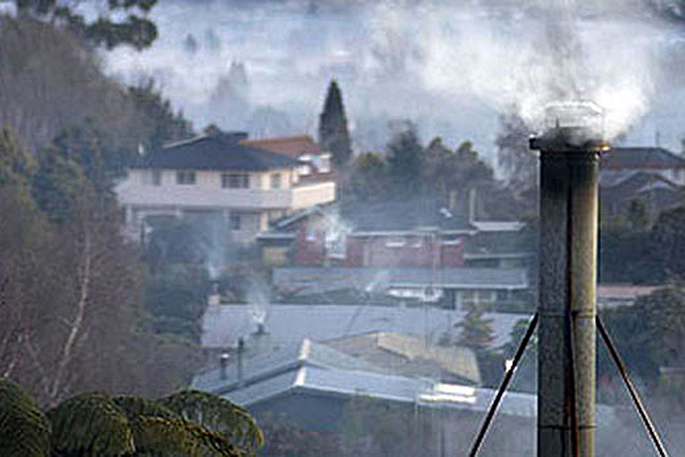As temperatures drop, people are being encouraged by the team at Land Air Water Aotearoa to help keep the air in towns and cities healthy by using clean home-heating methods.
In New Zealand, burning wood or coal for home heating is the main source of harmful particulate matter in the air, says LAWA.
An increase in the number of people working from home due to COVID-19, combined with cooler weather, means there could be an increase in home heating emissions this winter.
LAWA air quality lead Teresa Aberkane says while New Zealand towns and cities recorded below average levels of air pollution during COVID-19 alert level 4 lockdown, things may have been different if lockdown happened over winter.
"During lockdown, traffic pollution dropped significantly at roadside locations which you would expect with fewer vehicles on the road.
'This is good news, however unlike most developed countries, cars are not our primary air quality polluters.”
New Zealand's dominant source of particulate matter air pollution comes from people burning wood and coal to heat their homes, she says.
"If lockdown had coincided with winter rather than during a dry autumn, we could have seen record particulate matter exceedances."
It is important for people to stay warm in their homes over the cooler months, and there are different home heating methods available to suit different circumstances, that contribute less pollution, says LAWA.
The cleanest home heating appliances include heat pumps, pellet burners, or ultra-low emission burners. The next best alternatives are electric, gas, or oil heaters.
Clean heating may not always be an option. To reduce emissions from wood burners, people should only burn dry, non-treated wood from a trusted supplier and use an efficient burning technique.
Burning damp wood produces more harmful emissions and burning treated and painted wood emits toxins into the air, says LAWA.
Recent research by GNS Science in partnership with regional councils and unitary authorities has discovered lead and arsenic pollution in urban air from people burning painted wood.
Regional councils and unitary authorities are responsible for managing air quality in New Zealand.
As part of this management they operate a network of air quality monitoring stations alongside education and enforcement programmes.
Chair of the Bay of Plenty Council and Local Government New Zealand Regional Sector Doug Leeder has a message for people buying wood.
"We know from monitoring results reported on LAWA that air quality has improved over the past 10-years. We also know some places still exceed guidelines from time to time.
"We breathe what you burn, so be wary of people selling wet or treated wood. Bad wood is usually available at prices too good to be true and will pollute your household and neighbourhood.
"Refrain from burning waste outdoors and if you see or smell excessive air pollution, let your regional authority know."
For results from air quality monitoring stations across New Zealand visit the LAWA website.



0 comments
Leave a Comment
You must be logged in to make a comment.